How can we expand our reach with the Jubilee Turn Debt Into Hope campaign?
At the G7 Jubilee People’s Forum in Calgary this past June, ORCIE joined over 100 participants, social justice activists and people of faith from across Canada to call for global debt justice. Just four months after the Turn Debt Into Hope campaign was launched, the People’s Forum offered two key elements that demonstrate practical ways forward for the movement for debt justice.
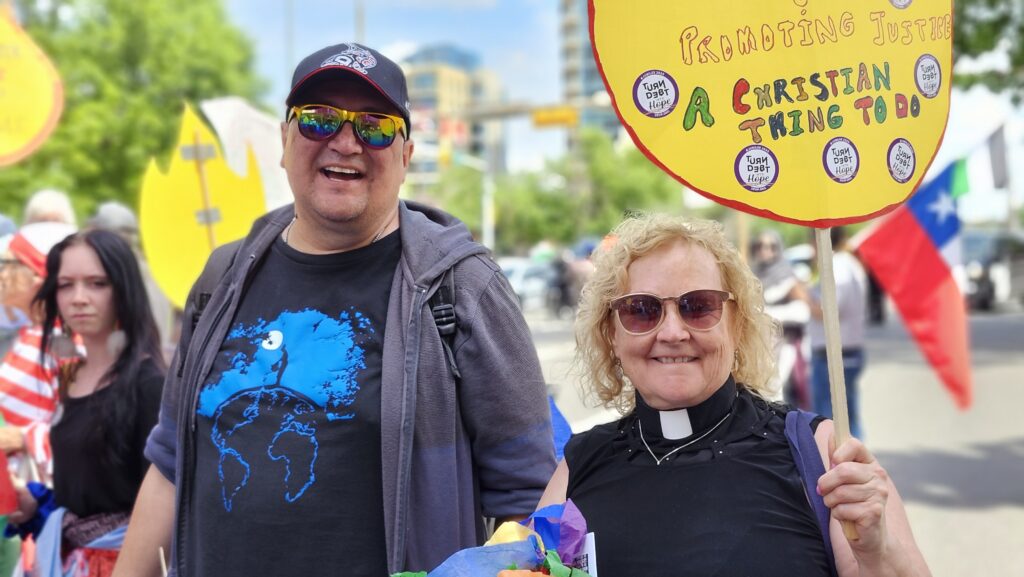
The G7 Jubilee People’s Forum began with a dynamic Interfaith Service where multiple faith traditions prayed for justice in the Jubilee year. Led by the Calgary Interfaith Council, the service included voices and elements from Muslim, Hindu, Indigenous, Jewish, Buddhist, Bahai, Sikh, Unitarian and Christian traditions, followed by a meal from the community kitchen of the Calgary Sikh gurdwara. The Council, 30 years strong, not only focuses on deepening relationships across faith traditions, but they also urge members of their community to educate themselves, become advocates for peace and justice, and pave the way for integrated coexistence for future generations. Members of the Council did not just participate in the first evening but stayed throughout the Forum and deepened their engagement with the Jubilee campaign. It was a vivid example to the ecumenical movement of the need to expand our relationships and work beyond our own faith and cultural communities.
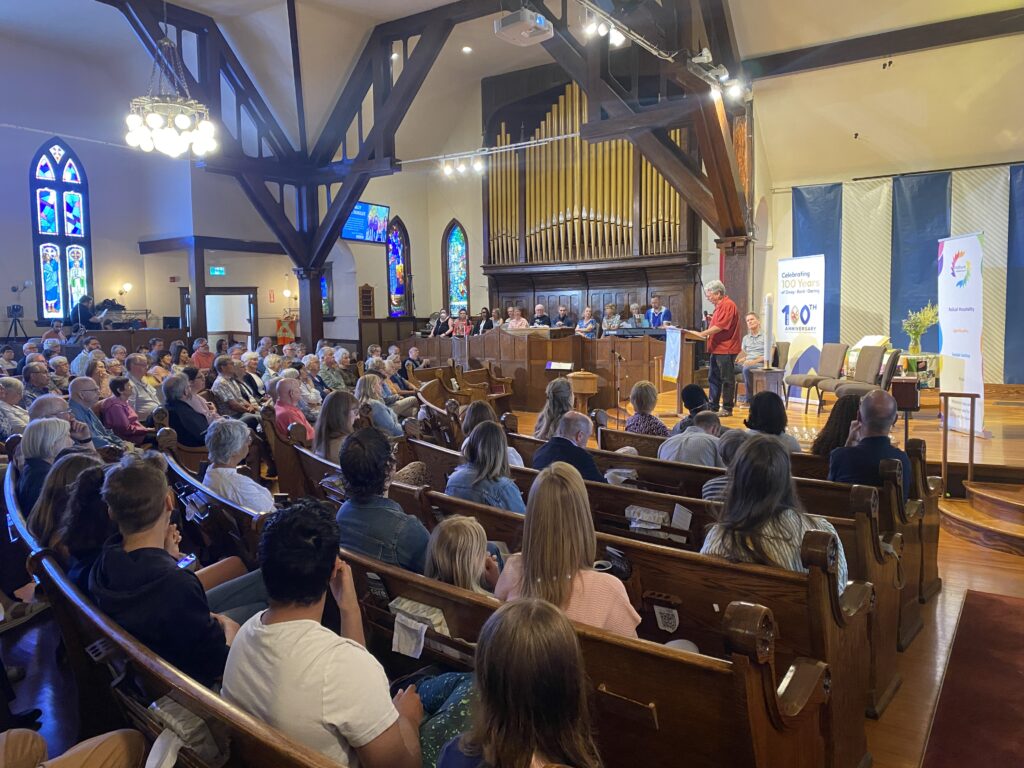
In Christian communities we often invite one or two other faith traditions to join the existing group, expecting newcomers to adapt to the group’s own history and way of doing things. Instead, what if we reach out to local interfaith groups, to create and build relationships that could lead to collaboration? Or what are the local Christian cultural communities, not necessarily part of the mainline churches, who we have neglected to include in our ecumenical work?
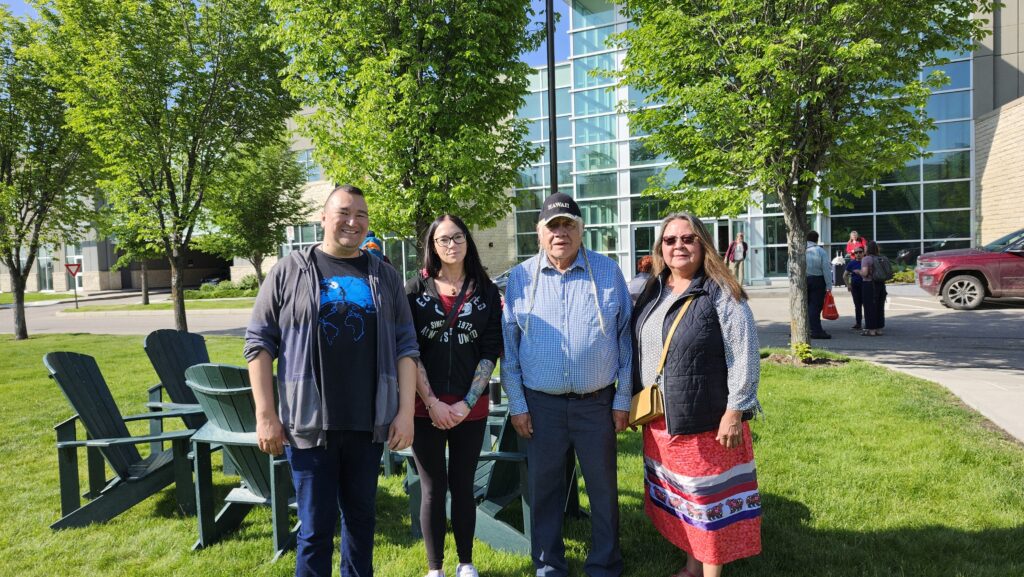
The city of Calgary is on the traditional territories of the Peoples of Treaty 7, which include the Blackfoot Confederacy (comprised of the Siksika, the Piikani, and the Kainai First Nations), the Tsuut’ina First Nation, and the Stoney Nakoda (including Chiniki, Bearspaw, and Goodstoney First Nations). Calgary is also home to the Métis Nation of Alberta.
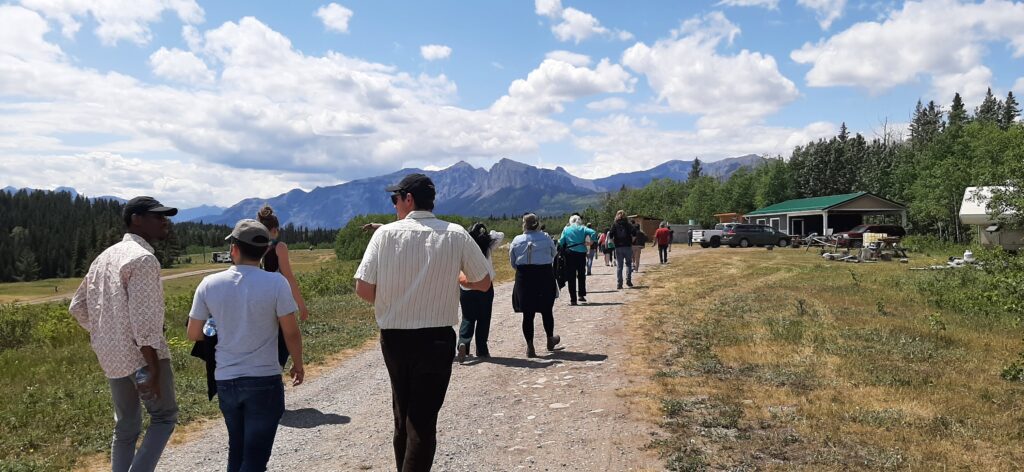
With a desire to go beyond land acknowledgements, each day of the Forum included dedicated time for an opening session by an Elder from the three main nations. A high point of the weekend was travelling to Mînî Thnî for an interfaith prayer meeting on sacred ground at the Stoney Nakoda First Nations Medicine Wheel. Leaving the classrooms to see the stunning mountains, the prairie flowers and the Bow River allowed for deeper integration of mind, heart and spirit.
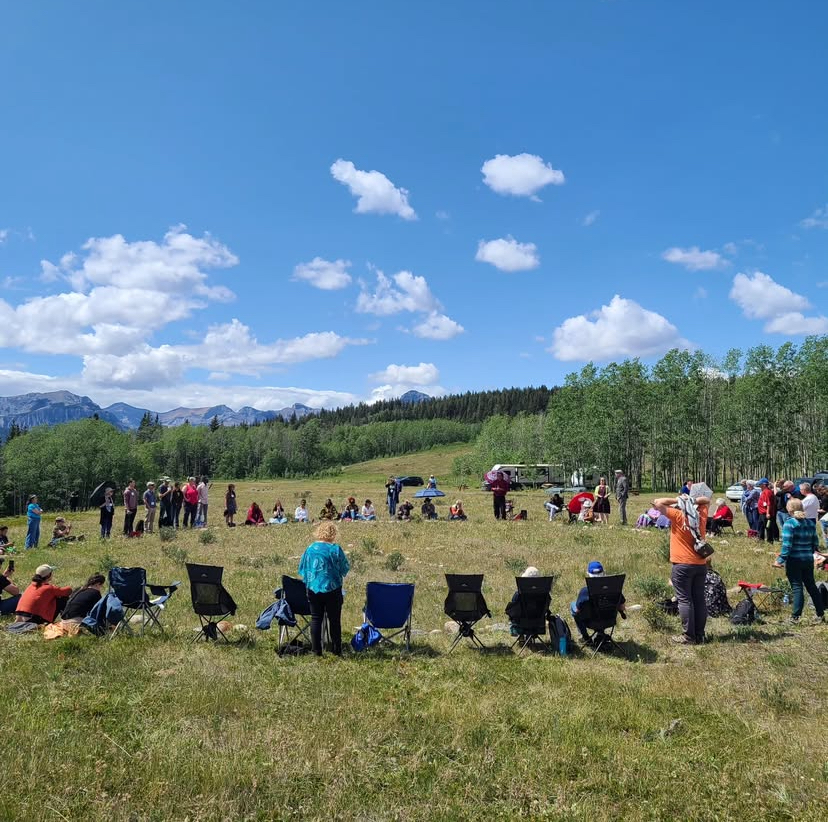
Reverend Tony Snow and Elders from the Bearspaw, Chiniki and Goodstoney First Nations joined the interfaith circle at Mnî Thnî to lift up prayers for the Jubilee vision for the world. Rev. Tony: “Built by Elders from the Ecumenical circle, the Medicine Wheel commemorates the journey of restoration that our people have traveled to honour the wisdom of our ancestors. In this space we invite interfaith prayer and ceremony to lead us. In this sacred space we bring hopes and dreams, guided by the wisdom of many traditions.” Alongside education and strategizing at the Forum, creating space for Indigenous Elders to share their wisdom and for each person to set foot on sacred Indigenous land provided us a chance to catch our breath, to taste a decolonized Christianity, and be stunned by the glory of creation. This time of integration set a strong foundation for the action steps where participants spoke about debt justice in local churches and rallied in the streets of Calgary.
